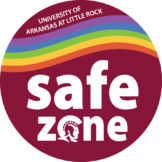Gonorrhea (also known as “the clap”) is a very common infection, especially among young people ages 15-24 years. Gonorrhea can infect both men and women. It is passed on during vaginal, anal, and oral sex (performing or receiving). Many men infected with gonorrhea have symptoms, while most women do not.
Men who do have symptoms, may have:
- A burning sensation when urinating;
- A white, yellow, or green discharge from the penis;
- Painful or swollen testicles (although this is less common).
If you are a sexually active man who is gay, bisexual, or who has sex with men, you should be tested for gonorrhea every year.
Even when a woman has symptoms, they are often mild and can be mistaken for a bladder or vaginal infection. Women with gonorrhea are at risk of developing serious complications from the infection, even if they don’t have any symptoms. Symptoms in women can include:
- Painful or burning sensation when urinating;
- Increased vaginal discharge;
- Vaginal bleeding between periods.
If you are a sexually active woman younger than 25 years or an older woman with risk factors such as new or multiple sex partners, or a sex partner who has a sexually transmitted infection, you should be tested for gonorrhea every year.
Rectal infections may either cause no symptoms or cause symptoms in both men and women that may include:
- Discharge;
- Anal itching;
- Soreness;
- Bleeding;
- Painful bowel movements.
Gonorrhea can be cured with the right medication. It is important that you take all of the medication your provider prescribes to cure the infection. Medication for gonorrhea should not be shared with anyone.
Telling a partner can be hard, but keep in mind that most people with an STD don’t know they have it. It’s important that you talk to your partner as soon as possible so she or he can get their own treatment. It is possible to pass gonorrhea back and forth, so if you get treated and your partner doesn’t, you may get infected again.
There are many ways to reduce your risk for gonorrhea and other STIs, including mutual monogamy (having sex with only one uninfected partner), using condoms for vaginal and anal sex, and condoms or other barrier method during oral sex.

